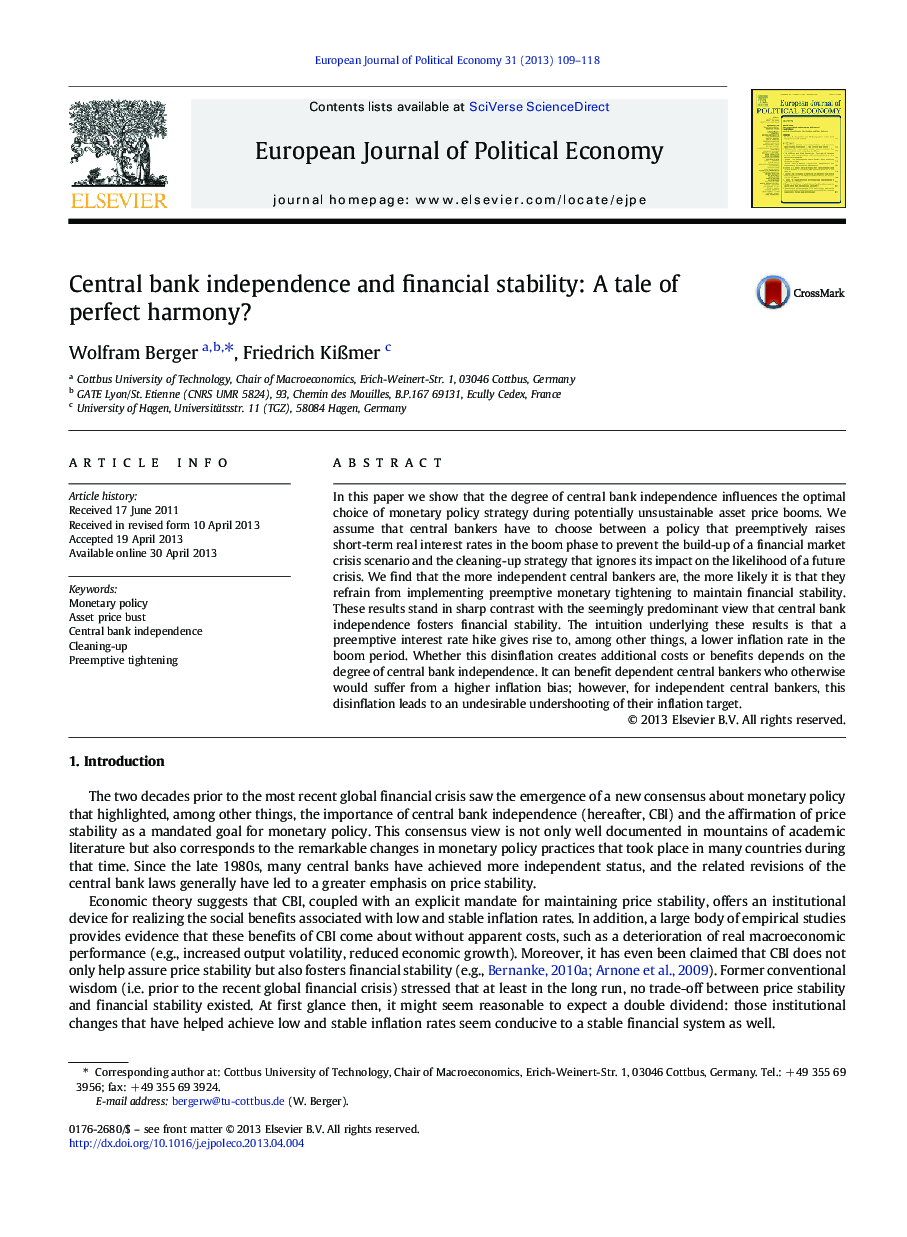| Article ID | Journal | Published Year | Pages | File Type |
|---|---|---|---|---|
| 5067950 | European Journal of Political Economy | 2013 | 10 Pages |
Abstract
In this paper we show that the degree of central bank independence influences the optimal choice of monetary policy strategy during potentially unsustainable asset price booms. We assume that central bankers have to choose between a policy that preemptively raises short-term real interest rates in the boom phase to prevent the build-up of a financial market crisis scenario and the cleaning-up strategy that ignores its impact on the likelihood of a future crisis. We find that the more independent central bankers are, the more likely it is that they refrain from implementing preemptive monetary tightening to maintain financial stability. These results stand in sharp contrast with the seemingly predominant view that central bank independence fosters financial stability. The intuition underlying these results is that a preemptive interest rate hike gives rise to, among other things, a lower inflation rate in the boom period. Whether this disinflation creates additional costs or benefits depends on the degree of central bank independence. It can benefit dependent central bankers who otherwise would suffer from a higher inflation bias; however, for independent central bankers, this disinflation leads to an undesirable undershooting of their inflation target.
Related Topics
Social Sciences and Humanities
Economics, Econometrics and Finance
Economics and Econometrics
